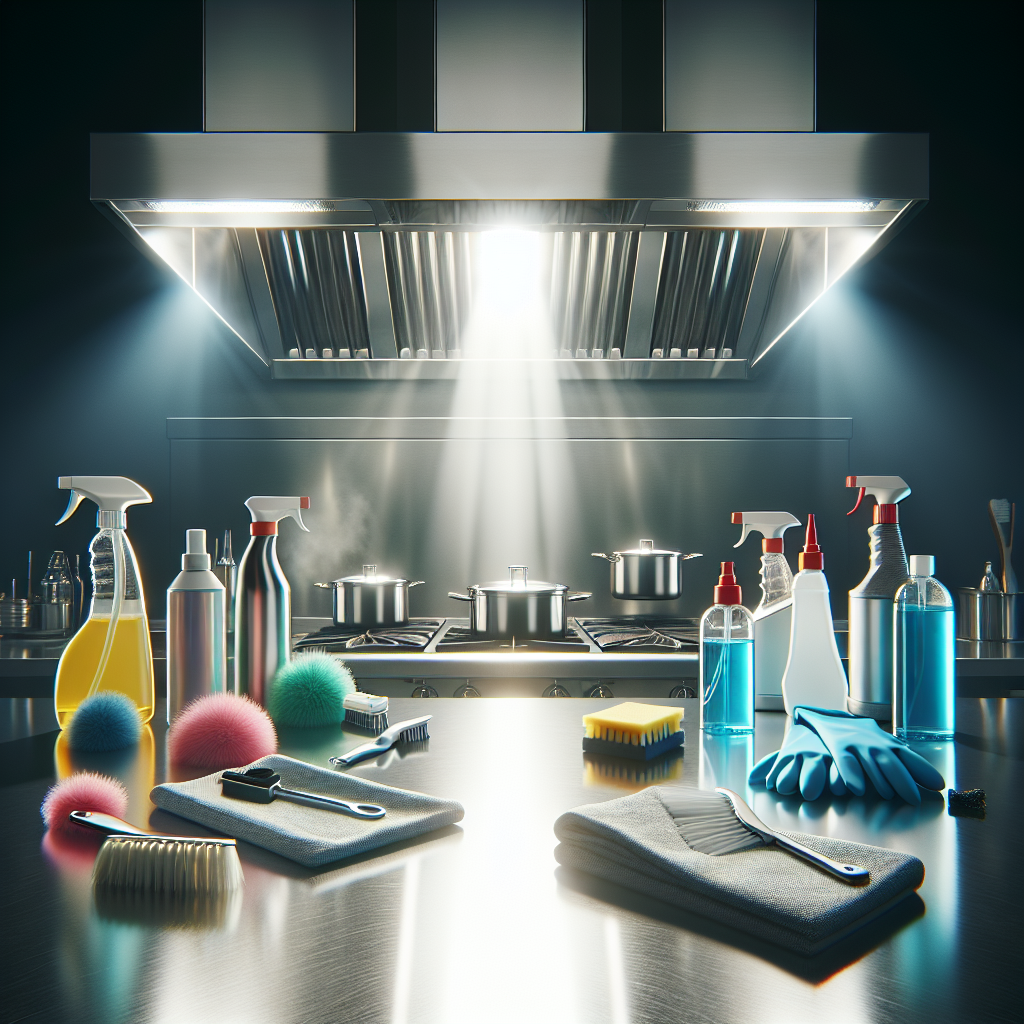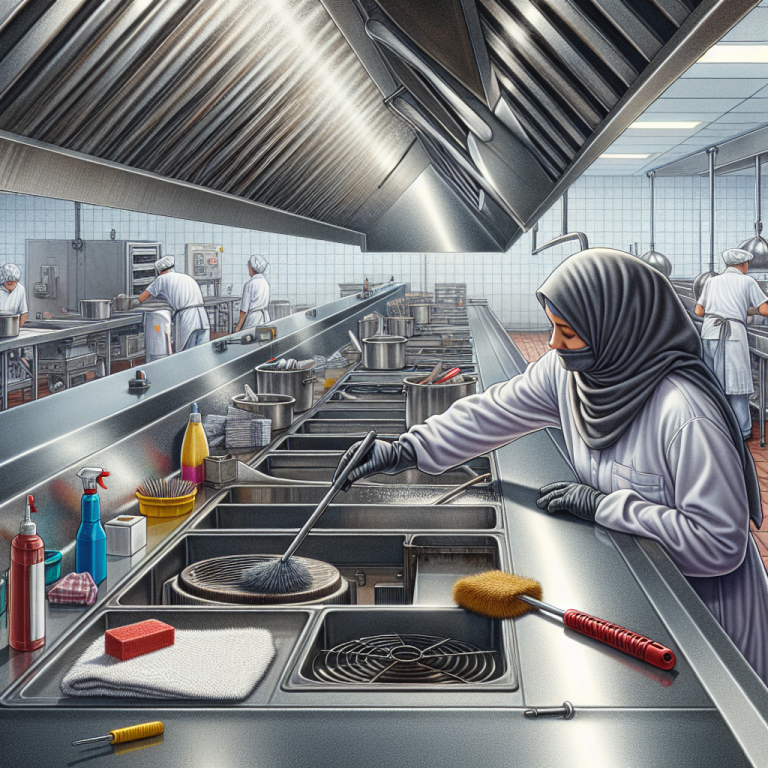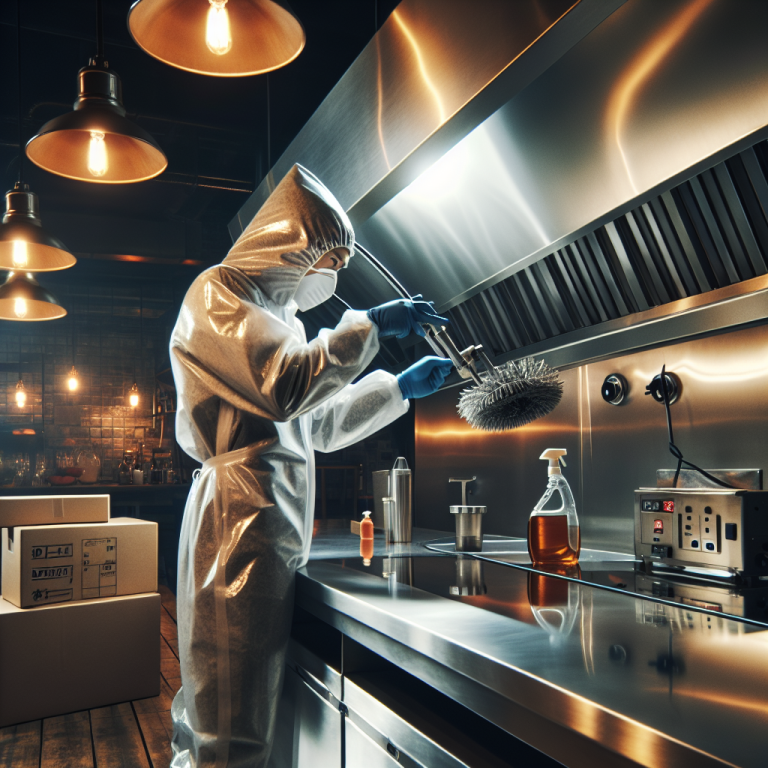The Ultimate Kitchen Hood Cleaning Guide: Tools, Chemicals, and Tips
Understanding Hood Cleaning: Why It’s Essential
In a bustling kitchen, whether at home or in a commercial setting, the exhaust hood plays a critical role in maintaining a clean and safe environment. Hood cleaning involves the thorough cleaning of the exhaust system, which includes the hood, filters, ducts, and exhaust fans. Proper maintenance and regular cleaning ensure that your kitchen operates efficiently and safely.
The Importance of Regular Hood Cleaning
Grease and grime build-up can pose significant risks if left unaddressed. Here are some reasons why regular hood cleaning is crucial:
- Fire Prevention: Grease build-up is highly flammable. Regular cleaning reduces the risk of kitchen fires, protecting your property and staff.
- Improved Air Quality: Clean hoods and ducts ensure that smoke, steam, and cooking odors are properly vented, maintaining good air quality in the kitchen.
- Compliance with Health Standards: Health and safety regulations often require regular hood cleaning. Compliance ensures that your restaurant continues to operate without legal issues.
- Efficiency: A clean exhaust system works more efficiently, reducing energy costs and extending the lifespan of your equipment.
Essential Equipment for Hood Cleaning
Proper hood cleaning requires specific tools and equipment to ensure a thorough job. Here are some of the essential items you’ll need:
- Protective Gear: Personal protective equipment (PPE) such as gloves, goggles, and coveralls are necessary to protect against harmful chemicals and grease.
- Scrapers and Brushes: Heavy-duty scrapers and brushes are essential for removing tough grease deposits.
- High-Pressure Washer: A high-pressure washer can help remove built-up grime from hoods, filters, and ducts.
- Vacuum: An industrial vacuum with HEPA filters can be used to clear out dust and debris from the ducts.
- Cleaning Chemicals: Commercial-grade degreasers and detergents are necessary to break down and remove grease effectively.
The Right Chemicals for the Job
Choosing the right chemicals is crucial for effective hood cleaning. Here are some commonly used cleaning agents:
- Degreasers: These chemicals are specifically designed to break down grease. Look for biodegradable and non-toxic options to ensure safety and environmental responsibility.
- Foam Cleaners: Foam cleaners cling to vertical surfaces, making them ideal for cleaning hoods and ductwork.
- Solvents: In some cases, you may need strong solvents to dissolve stubborn grease and grime. Ensure these are used in well-ventilated areas and with proper PPE.
- Acidic Cleaners: These can be used to remove rust and other deposits but should be handled with care due to their corrosive nature.
Step-by-Step Hood Cleaning Procedure
Effective hood cleaning requires a systematic approach. Here’s a step-by-step guide to ensure your exhaust system is thoroughly cleaned:
1. Preparation
Before you start, ensure the cooking equipment is turned off and cooled down. Remove any detachable filters and parts from the hood. Cover nearby appliances and surfaces to protect them from splashes and debris.
2. Apply Cleaning Agents
Spray a commercial-grade degreaser on the hood, filters, and inside the ducts. Let it sit for the recommended time to allow the grease to break down.
3. Scrub and Scrape
Use scrapers and brushes to remove the loosened grease. Pay attention to corners and crevices where grime tends to accumulate. For the filters, submerge them in a solution of degreaser and hot water and scrub thoroughly.
4. Rinse and Dry
Use a high-pressure washer or steam cleaner to rinse off the cleaning agents and dissolved grease. Ensure all components are thoroughly dried to prevent rust and mold growth.
5. Reassemble and Final Check
Once everything is clean and dry, reassemble the hood and its components. Perform a final check to ensure all parts are securely in place and the system is functioning properly.
Professional vs. DIY Hood Cleaning
While DIY hood cleaning can be effective for maintenance, hiring a professional service is recommended for thorough, periodic cleanings, especially in commercial kitchens. Professional cleaners have the expertise, equipment, and chemicals to tackle even the most stubborn grease and ensure that all components are thoroughly cleaned.
Maintaining Your Clean Hood
After the initial deep clean, regular maintenance is key to keeping your kitchen safe and efficient. Here are some tips:
- Weekly Cleaning: Wipe down your hood and filters weekly to keep grease build-up manageable.
- Monthly Checks: Inspect your exhaust system monthly for signs of grease build-up and potential issues.
- Annual Professional Cleaning: Schedule a professional hood cleaning at least once a year for a comprehensive clean and inspection.
- Filter Replacement: Replace filters as recommended by the manufacturer to ensure optimal performance.
Conclusion
A clean kitchen is a safe and efficient kitchen. Regular hood cleaning not only prevents fires and improves air quality but also ensures compliance with health standards and enhances the efficiency of your exhaust system. Whether you opt for DIY maintenance or hire a professional service, keeping your kitchen hood clean is an investment in the safety and success of your culinary operations. For comprehensive and expert hood cleaning services, visit Atlanta.







